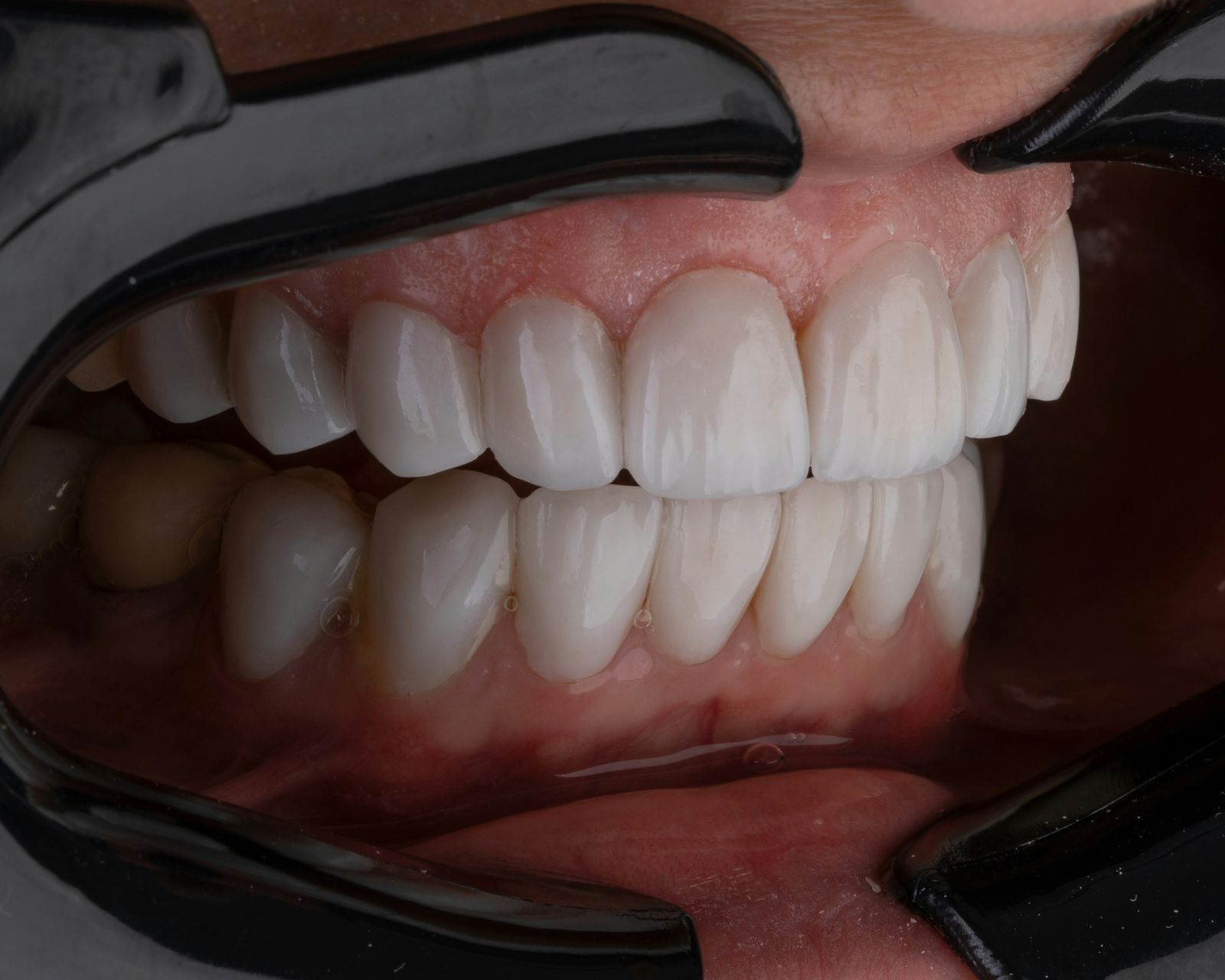You might not feel it initially, but something serious could be happening under the surface of your gums, leading to periodontitis. Periodontitis is a progressive gum disease that, in the early stages, presents with no sign of pain or discomfort. It isn’t always curable, but managing periodontal disease is possible with a good dental team and commitment to your oral health.
That said, periodontitis needs to be caught quickly to be treated effectively. It is a persistent infection that initially affects the gums and spreads deep into the bone structure that holds teeth in place. It develops when gingivitis — an earlier, milder form of gum disease — is left untreated and allowed to progress.
In this post, we’ll explain periodontitis, why acting early is vital, and what steps you can take — at home and with your dental team — to stop it and keep your smile strong for years.
Understanding Periodontitis and the Risk Factors
Periodontitis begins quietly with gingivitis — an early-stage gum irritation caused by plaque buildup that causes an inflammatory response. The early symptoms are often red or bleeding gums when you brush. Don’t ignore these symptoms; when untreated, they can quickly escalate into the more serious condition of periodontitis, which almost certainly will damage your gums, teeth, and bones permanently.
When the disease progresses, the bacteria in plaque begin to move below the gum line, grow, and become more toxic. This triggers a chronic inflammatory response that breaks down the connective tissues and bones that anchor teeth in place. Untreated, the inflammation deepens and spreads, and the gums drop away from the teeth. Deep crevices form and bacteria invade these pockets and thrive under the gums. Without treatment, this cycle continues, leading to gum recession, loose teeth, and permanent tooth loss.
Early warning signs of periodontitis include:
Tenderness of the gums: If your gums are swollen, tender to the touch, or tender when you chew, this could be an early sign of periodontitis. A sure sign of early periodontitis is loose or sensitive teeth and gums.
Bad breath: As the bacteria grow under the gums, you’ll start having signs of bad breath and possibly have a sour or bad taste in your mouth, which is a sign of poor oral hygiene.
Change in your bite: As the disease progresses, the bacteria will eat away at your gums and bones, and your teeth will become looser, changing your bite. At this stage, your teeth might feel loose in their sockets.
These symptoms may be subtle initially, so regular dental checkups are essential. The earlier periodontitis is caught, the easier it is to treat — and the better your chances of keeping your smile healthy and intact.
Why You Can’t Ignore It
Most people don’t look forward to the dentist. Still, the cost of ignoring swollen gum tissue from gingivitis or early-stage periodontitis is severe if you value your dental health. The consequences of putting off treatment can lead to many conditions, such as tooth loss, jawbone deterioration, and gum line degradation, and can lead to heart disease and diabetes. So, this can be very serious. When and if you do eventually seek professional dental treatment, the costs can be expensive financially, and the long road of therapy can be emotionally taxing.
If you feel you could have gingivitis or periodontitis, call your dentist immediately. If you catch the progression early enough, treatment will be minimal. But waiting too long can have serious repercussions. Treating gingivitis or mild periodontitis is often simple, effective, and affordable — especially compared to the emotional and physical toll of advanced gum disease. The sooner you begin care, the more likely you will preserve your natural teeth and avoid invasive procedures.
The Good News: It’s Treatable
Periodontitis is treatable but more manageable, less invasive, and affordable if the treatment starts early. The early-stage treatment includes:
Regular cleanings: Keep your mouth, gums, and teeth healthy with regular checkups. A dental professional can catch swollen gums, gingivitis, and periodontitis during a regular cleaning, which is recommended every six months and is generally covered by insurance.
Scaling: Unlike a standard cleaning that focuses on the surface, scaling goes below the gum line to clear out the plaque and tartar that brushing and flossing just can’t reach.
At-home care: Periodontitis can be prevented with confident at-home dental care, which includes consistent brushing and flossing between teeth daily.
More invasive treatments might be necessary if you have a more advanced case, which could include pocket reduction surgery, grafting, or laser therapy.
Why Seeing a Dentist Is Critical
You might brush and floss daily and at night, but things are happening beneath the gum line that only a trained eye can catch, and that can lead to severe bone loss. Dentists and hygienists are trained to spot the earliest signs of gum disease — sometimes before you even notice any symptoms. That’s why regular dental exams and cleanings are so important.
When you stay consistent with your appointments, your dental team can help prevent minor issues from becoming big ones. And if signs of periodontitis appear, your dentist can create a personalized treatment plan that works with your schedule, health, and budget. It’s proactive care — not just reactive treatment — and can make all the difference in saving your teeth and your smile.
How to Stop Periodontitis Before It Becomes a Bigger Problem
Regular dental checkups with a dentist or dental hygienist to detect early signs of gum disease are your best defense. They help catch early signs of gum disease and prevent it from progressing to more advanced states with professional disease control practices. Whether you think you may have gum disease or not, you owe it to yourself to see a dentist. Trusted Dentistry can help you identify and treat gum disease before it becomes an issue. Request an appointment today to get ahead of gum disease.




